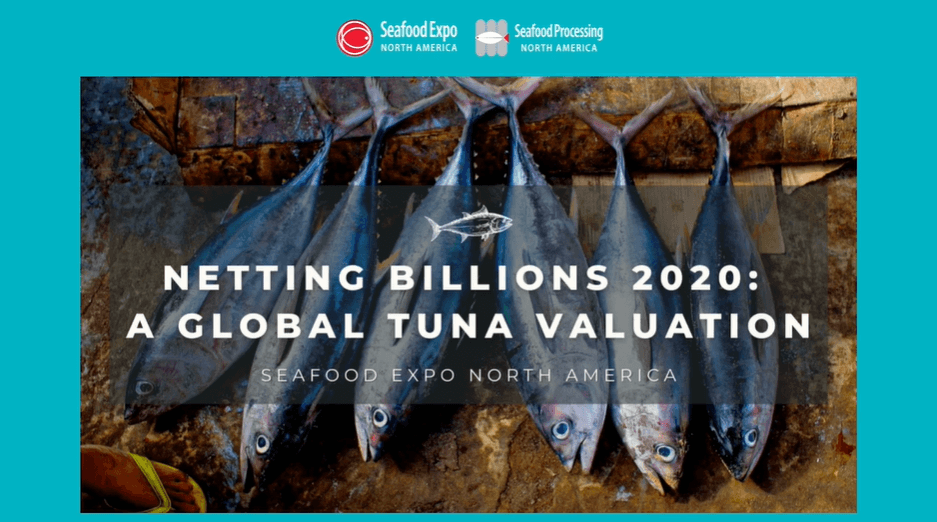Netting Billions 2020: A Global Tuna Valuation
Moderator: Grantly Galland, The Pew Charitable Trusts
Speakers: Hugo Byrnes, Ahold Delhaize
Greg Hammann, Marine Instruments
Raiana McKinney, The Pew Charitable Trusts,
Tom Pickerell, Global Tuna Alliance
In 2018, commercial tuna fishing was worth more than US$40 billion to the world economy, more than the GDP of at least 100 nations. From canned tuna to top-shelf bluefin sashimi, these fisheries generate significant revenue and support an enormous industry from the fishers all the way to the consumers. Due to the ongoing global pandemic, demand for non-perishable protein sources, such as canned tuna, has skyrocketed. It is easy to see just how vital the tuna industry is for not just the blue economy—but for food security around the world.
But while vessels are catching more tuna than ever before to meet this demand, the value at the dock and at the final point of sale has decreased since 2012. When factoring in the costs associated with higher catch, profits may have even declined substantially. The message is clear: catching more fish is not always better for the bottom-line. Sustainably managing tuna fisheries and allowing overfished stocks to recover will maximize their value, reduce the cost of fishing, and sustain marine ecosystems and the industries and people who rely on tuna fishing. Better management of tuna fisheries is not simply a conservation issue but also an economic one.
Yet, more often than not, the long-term sustainability of these fisheries takes a back seat to the short-term political or monetary gains that often drive management decisions. Adopting forward thinking harvest strategies, coupled with stronger consequences for noncompliance and well-developed electronic monitoring of fishing activity would all help restore tunas to healthy population sizes, preserve their value, and ensure that these valuable fisheries are being governed effectively.
This session would start with an overview presentation on recent research to estimate the global monetary value of commercial tuna fisheries. Beyond the economics, the presentation will cover the tuna fisheries management process and discuss ways governments and industry can improve management of fish stocks globally by:
1. Modernizing management through harvest strategies,
2. Improving oversight and accurate reporting of fishing activities, and
3. Ensuring consequences for noncompliance with fisheries rules.
Following this presentation, the Global Tuna Alliance will moderate a panel discussion.






